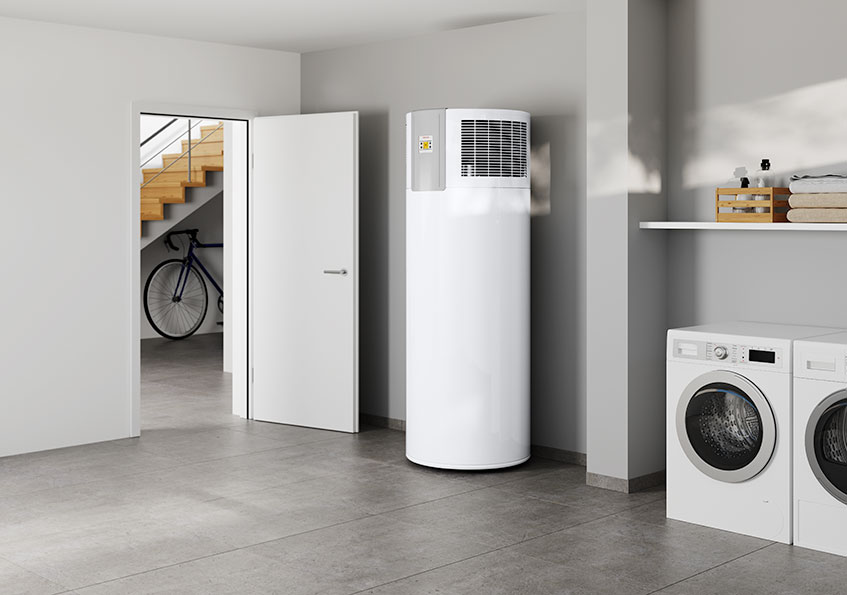Heat pump hot water systems are gaining popularity as an energy-efficient and cost-effective alternative to traditional hot water heaters. These systems work extracting heat from the surrounding air and transferring it to the water in the tank, providing hot water to homes and businesses with significantly lower energy consumption.
In this article, we will delve deeper into the workings of heat-pump hot water systems, their benefits, potential drawbacks, and whether they are a good fit for your home or business.
Table of Contents
How Do Heat-Pump Hot Water Systems Work?
Heat-pump hot water systems work similarly to air conditioners, refrigerators, and other heat pump systems. They use a refrigerant fluid to absorb heat from the surrounding air and transfer it to the water in the tank.
The system consists of an outdoor unit, a heat pump compressor, and a storage tank. The outdoor unit contains the evaporator coil, which absorbs heat from the air, and the fan, which pulls air over the evaporator coil to facilitate heat exchange. The heat pump compressor is responsible for compressing the refrigerant and raising its temperature, allowing it to transfer the absorbed heat to the water in the tank. Finally, the storage tank holds the heated water until it is needed for use.
Benefits of Heat-Pump Hot Water Systems
Energy Efficiency: Heat-pump hot water systems are highly energy-efficient, using up to 65% less energy than traditional electric hot water heaters. They achieve this extracting heat from the surrounding air, which requires significantly less energy than heating water from scratch. As a result, homeowners and businesses can save significantly on their energy bills.
Reduced Carbon Footprint: By using less energy to heat water, heat-pump hot water systems help to reduce greenhouse gas emissions, making them an environmentally-friendly alternative to traditional hot water heaters.
Longer Lifespan: Heat-pump hot water systems are built to last, with a typical lifespan of 10-15 years, which is longer than traditional hot water heaters.
Potential Drawbacks of Heat-Pump Hot Water Systems
Upfront Cost: While heat-pump hot water systems can save homeowners and businesses money in the long run, they typically have a higher upfront cost than traditional hot water heaters. However, this cost can be offset energy savings over time.
Climate Considerations: Heat-pump hot water systems work best in areas with moderate to warm temperatures, as they rely on the surrounding air to extract heat. In colder climates, they may be less efficient and require more energy to operate.

Noise: Heat-pump hot water systems can generate some noise due to the operation of the outdoor unit and the compressor. However, many manufacturers have taken steps to reduce noise levels in their systems.
Is a Heat-Pump Hot Water System Right for You?
If you are looking for an energy-efficient and cost-effective alternative to traditional hot water heaters, a heat-pump hot water system may be the right choice for you. They are a great fit for homes and businesses in moderate to warm climates and can provide significant energy savings over time.
However, it’s important to consider the upfront cost of installation and whether the potential energy savings justify the investment. Additionally, it’s essential to choose a reputable and experienced installer to ensure proper installation and maintenance of the system.
Conclusion
Heat-pump hot water systems are a highly efficient and cost-effective alternative to traditional hot water heaters. They offer significant energy savings and can help to reduce greenhouse gas emissions, making them an environmentally-friendly choice for homes and businesses. However, it’s important to consider the upfront cost and whether they are a good fit for your climate and energy needs. If you’re considering a heat-pump hot water system, be sure to choose a reputable and experienced installer to ensure proper installation and maintenance.

